The fight to end extreme poverty is one of the great success stories in the modern world as more than a billion people have risen out of extreme poverty since 1990. SDG #1 is to eliminate all extreme poverty by 2030, yet as the date gets closer the work gets harder. The Gates Foundation Goalkeepers annual report states the worst poverty is increasingly concentrated in the places least able to fight it, especially countries south of the Sahara. In this episode, Bill Gates shares his surprising projection numbers and Dr Joyce Banda, former president of Malawi, President Emmanuel Macron, and other guests, share their ideas for how we can take increased action in the fight to end extreme poverty. Finally, hear how our sponsor, Cisco, uses their technology and expertise to accelerate global problem solving to benefit people, society, and the planet and to create an inclusive digital economy.
Featured guests
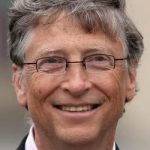
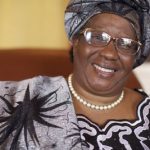

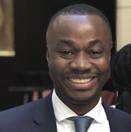
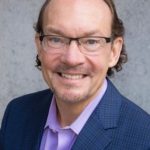
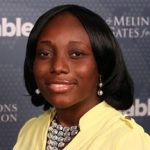
@BEWAJ Joannie Bewa is a medical doctor who has worked in adolescent and maternal health for 8 years. She is the founder of the Young Beninese Leaders Association (YBLA) which, since its inception, has trained 10,000 young people on HIV/AIDS prevention through its “Red Ribbon Campaign,” and in partnership with the First lady Michelle Obama Young African Women Leaders Program, has empowered and trained 3,000 girls and women on civic engagement, leadership and entrepreneurship. She has participated in the consultation and development process of global frameworks, including ICPD and the Post 2015 Agenda, and is a member of the Africa CSO Coalition on Population and Development (ACCPD). She is also a “World at School” Ambassador and a fellow of Secretary Clinton’s “Women in Public Service Project.” Joannie speaks French and English and loves Africa.

@aezeh Alex Ezeh is a distinguished visiting fellow at CGD. After 17 years leading the African Population and Health Research Center (APHRC), he stepped down as executive director in September 2017. As the founding executive director, Dr. Ezeh guided APHRC to become one of Africa’s foremost regional research center addressing population, health, education, and development issues. He initiated and directed the Consortium for Advanced Research Training in Africa (CARTA), an initiative to strengthen doctoral training and the retention of academics at African universities. Dr. Ezeh has served on a number of Lancet Commissions including the Rockefeller Foundation-Lancet Commission on Planetary Health, the Lancet Commission on the Future of Health in Africa, and he currently co-chairs the Guttmacher-Lancet Commission on Sexual and Reproductive Health and Rights. He is also a member of the Vatican-Lancet-Mario Negri Commission on the Value of Life that began its work in February 2018.
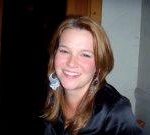
Amanda Cumberland is the Head of Strategic Insights at Cisco Corporate Affairs, with a focus on market research, program evaluation, statistical analysis, customer feedback, impact evaluation, research communication, business intelligence, strategic planning and metrics. Amanda’s background includes over 20 years of experience in Corporate and Academic research and analysis, including research design, methodology, statistical analysis, model creation, customer feedback, measurement, longitudinal research, metrics, experimental research, qualitative research, and research publications.
Additional Resources

Cisco CSR Research and Resources
Learn more about Cisco's original research on topics such as the future of work that inform the company's CSR priorities and their goal to positively impact 1 billion people by 2025.
Transcript
Intro: (00:02) My friend who was my best friend in the village who failed to go to secondary school because he parents couldn’t raise $6 and I was privileged to go, but she was brighter than me, is still where I left her. I always say, please present me, the young girl who decided to leave school at 10 in order to be married at 12. Even I was surprised when we ran these numbers that it shows that almost 90 percent of the people remaining in extreme poverty will be in Subsaharan Africa by 2050. In today’s world, you cannot reduce poverty if you don’t reduce conflict. You cannot reduce hunger if you don’t deal with conflict and war.
Claudia Romo Edelman: (00:49) This is the Global GoalsCast.
Edie Lush: (00:51) The podcast that asks if we can change the world.
Claudia Romo Edelman: (00:55) This episode, are we losing ground in the fight against extreme poverty?
Edie Lush: (00:59) Right after this.
CREDITS: (01:02) This episode was made possible thanks to the support of Cisco and thank you to HARMAN the official sound of Global GoalsCast.
Edie Lush: (01:12) Welcome back. I’m Edie Lush.
Claudia Romo Edelman: (01:14) And I’m Claudia Romo Edelman. This episode, we’ll look at the most fundamental of all the sustainable development goals, Goal number one.
Edie Lush: (01:22) That’s right. The goal of eliminating extreme poverty by 2030. So Claudia, did they make it goal one because it was the most important of the 17 sustainable development goals?
Claudia Romo Edelman: (01:34) Yes. All the other goals are based on ending poverty and many are also essential to ending poverty, educating girls, curbing population growth, curtailing climate change, resolving conflicts.
Edie Lush: (01:48) And we know the world has made extraordinary progress in eradicating extreme poverty in Asia. A billion people have been lifted up,
Claudia Romo Edelman: (01:56) But now bill gates is sounding an alarm.
Bill Gates: (01:59) Even I was surprised when we ran these numbers that it shows that almost 90 percent of the people remaining an extreme poverty will be in Subsaharan Africa by 2050, and so what this means is that this poverty is going to be a feature of life in a few places and these are places where there are the fewest opportunities. In some of these places, there’s violence, a lack of stability. These are places where climate change will make these subsistence farmers lives more difficult. Also, these are often places where the governance is not providing the primary health care or education even at a basic level and every one of these places are exactly where we’re experiencing rapid population growth. The geography of births in the world is changing and this is something that’s really fascinating. Over the rest of the century, the number of babies born stays the same. We really reached peak baby. We can seethat the places that they’re born are changing.
Claudia Romo Edelman: (03:08) That was Bill Gates at his Goalkeepers event during the global goals week in New York.
Edie Lush: (03:13) That was very well done for getting all those words out.
Claudia Romo Edelman: (03:16) I know, concentrated poverty in Africa. That’s what bill and Melinda Gates warned about in the report from their foundation. Later in this episode, we will hear from an expert who helped prepare that report.
Edie Lush: (03:30) First, let’s talk about the solutions. Gates stressed to us in the audience that the situation is far from hopeless. He was calling the world’s attention to present trends so the world would change those trends.
Claudia Romo Edelman: (03:43) China and India have beaten extreme poverty and they are already success stories in Africa,
Edie Lush: (03:48) And you know how much we love success stories,
Claudia Romo Edelman: (03:51) We do.
Edie Lush: (03:51) Here on the global GoalsCast. The world needs to take what we already know works well and do much, much more of it. That was the message from Bill and Melinda Gates. Invest in people and what they call human capital.
Claudia Romo Edelman: (04:05) So Edie, why don’t we start with your conversation with an African leader that you caught up at the United Nations. I have to admit, she’s one of my favorites.
Dr. Joyce Banda: (04:13) My name is Joyce Banda. I am former president of the Republic of Malawi, but I’ve been in the women’s Movement for 35 years so people know me for the work that I’ve done in the Joyce Banda Foundation. I am convinced that Africa will change for the better and I’ll caution that we have done well. We’ve done our best. We’ve been leaders even before colonization and we’re leaders today and we are participating and we have had 4 female presidents there other continents that are still trying to get one woman to statehouse that I know.
Edie Lush: (04:50) Still waiting here in the U. S. I also know from the work I’ve done on the Global GoalsCast how important it is to keep girls in secondary education so that they can make the right choice at age 15. Here, the goalkeepers event, president macron was blunt about this. Let me play it.
Pres Macron: (05:07) always say, please present me with a lady who decided, being perfectly educated, to have seven, eight, nine children, please present me the young girl who decided to leave school at 10 in order to be married at 12 and this is not teaching African people from New York. This is a pure bullshit to say that.
Edie Lush: (05:36) So tell me what you think we can do to support girls with that really important stage.
Dr. Joyce Banda: (05:40) Now I’m glad you asked that question. The Joyce Banda Foundation runs to secondary schools and I hope that one day you can have a chance to visit. One of them is up and the other one is rural based in the community because my friend was my best friend in village who failed to go to secondary school because her parents couldn’t raise $6 and I was privileged to go, but she was brighter than me, is still where I left her. So Christa lost out and I went all the way to state house and I think that is the greatest injustice to the 130 million girls that are not going to school. So I engaged Christa I even brought her to America yet we even met together Gordon Brown in 2018. So she’s my fellow champion in the village. She’s the one who goes looking for children, girls that we can send to our school in the village, but the village, we target girls and boys that are from child headed households. So what needs to happen now is that most countries they have free primary education, but secondary education is not free.Our school is one of the only three free secondary schools in Malawi. So what do we need to do is to find a way of providing free education to these girls when they get. We live in years old now, they are going to seconrdary school because, when a girl stays four more years in secondary school in Africa in the village, it’s not only about her future, it’s about her health as well because then we will hopefully we avoid getting married at 11, at 12 and in Malawi I’ve seen a nine year old bride. But when she gets older school they need just four more years and do your research and mine have taught us that most of those that are dying giving birth are between 12 and 19, so secondary education to agree with what you’ve just said is critical in many ways, but it is important for us to find a way because there are many countries that have decided. Ghana has just introduced free secondary education, but you can see the challenges now.
Edie Lush: (07:46) Dr Joyce Banda, the former president of Malawi a really inspiring person and I absolutely do hope to visit her schools.
Claudia Romo Edelman: (07:53) Yes, I’m sure everybody would like to hear more and maybe Edie, maybe in season two we will have some funding to send you to Malawi. Oh my God and Michelle too, she’s waving. Okay. Together with our producer. But for now, we learned so much during these, what we called the global goals week that happens at the framework of the United Nations General Assembly. And also from the Goalkeepers, from the people that came from all over the world to this coast, precisely for the advancement of the sustainable development goals this September.
Edie Lush: (08:26) We’ve said so often, Claudia, that educating girls is the single most powerful tool for ending extreme poverty and improving society’s.
Claudia Romo Edelman: (08:33) Yes, and part of what Bill Gates is saying is that the challenge in parts of Africa is deep and complicated, made more so because the population is growing fastest in some of the poorest and most distressed places, so ending strife goes hand in hand with education, improving agriculture and curbing climate change as well as population growth.
Claudia Romo Edelman: (08:55) Edie, you spoke to a child soldier from Sierra Leone, right?
Edie Lush: (08:59) Yes. A child soldier who was rescued by some women from UNICEF and is now an education activist with a vision.
Mohammed Sidibay: (09:05) My name is Mohammed Sidibay. I was born in a country that was engaged in a 10 year war in which I got involved in it when I was five. The rebels came to my village and played God on the lives of my entire family and they took me and so I became a child soldier from when I was five until I was 10. Like most wars, the war in Sierra Leone ended and I found myself in the streets of Freetown not knowing how to read or write and being homeless and orphaned, under 10 years old. That’s not a situation I should have been in.
Edie Lush: (09:42) And so what did you do? What happened?
Mohammed Sidibay: (09:45) Thanks to UNICEF who helped to get me in school and then thanks to organizations like I Earn, the My Hero Project, I serendipitously came to the United States 4 years after I got out of the war. I was 14 at the time and I came to speak at a conference on the topic Children caught in crossfire and it was supposed to last a week and that week is morphed into 11 years now. Before coming to America, I thought America was the greatest country in the world, in the Sierra Leone was a country of violence and I never wanted to go back because he has done nothing but take away everything from me and has never given me anything. I quickly realized that was wrong on both fronts. That Sierra Leone it’s not a country of violence, is violence with an aspect of my culture too. I was introduced to and America was not that. It’s not the perfect society I imagined it to be. Then it’s a country of paradox in so many ways.
Edie Lush: (10:47) That’s putting it lightly, I would say. You credit UNICEF and some education for what saved you or is that the right way to put it? Tell me a little more about that journey. What was it specifically about that education that opens your world view?
Mohammed Sidibay: (11:04) When you were a kid, there are, people take it for granted in the West, the ability to learn how to read and write, the ability to see your name and recognize that it’s your name. It gives you ownership. And so by fighting to ensure that I was enrolled in school so that I learned how to spell and how to read and write, I gain ownership of who I was. Now granted to the circumstances and the situation we’re not ideal, but I think that was like the first step.
Edie Lush: (11:39) When I interview you in a year, what’s going to be an incremental bit of success that we can talk about?
Mohammed Sidibay: (11:46) My hope is right now there’s a ban on girls education. Pregnant girls abuse specific. Pregnant girls are being prevented from to school with a government that says universal education for all. In a year, I hope that that will not be the case, that. That there will be a band that this government will realize on their president says, this is not right and we’re going to reverse that ban. Furthermore, there are a lot of new powerful positions have been created with the leaders in the administration of inclusion for young people, but what I’m seeing is these powerful positions have been created, have been mainly filled by boys country that has more women than men, should not be this way. So in a year term, I hope the presidents will continue to create more opportunities and more high profile jobs and make sure that women are the one filling these roles because to me that’s important because most of 99.9% of the people have had the biggest impact in my life, who have helped shaped my life and my vision of the world and who’ve ensured that I am where I am today and been women and I think it’s time that we give credit where credit’s due.
Claudia Romo Edelman: (12:59) Goof more Mohammed Sidibay of Sierra Leone.
Edie Lush: (13:01) It was very moving to hear his story and to recognize that both he and Joyce Banda, we’re telling personal stories that represent a broad path forward. For Africa to breakout of the trends Bill Gates is warning about.
Claudia Romo Edelman: (13:15) Yes, exactly. You spoke to one of our partners who had a very important perspective of how complex eradicating poverty is now and why the path leads straight through one other of the global goals.
Edie Lush: (13:29) His name is Neil Keny-Guyer, and he’s the CEO of Mercy Corps. Now I know that you’re most concerned about goal number 16. For those who don’t know, it tells what it is and why.
Neil KG: (13:41) Goal Sixteen essentially relates to peace, justice, and good sound institutions. The reason that we think that goal 16 is so important, in fact, the most critical goal is because in today’s world you cannot reduce poverty if you don’t reduce conflict. You cannot reduce hunger if you don’t deal with conflict and war. If you know promote peace, you cannot continue to make progress around health and education, and the reason is is because poverty, poor health, poor education outcomes, unclean water, hunger, they’re all clustering in a set of fragile states, so that’s why it is absolutely essential that we make progress in addressing some of the fundamental conflicts around the world. Otherwise, we will not achieve the aspiration of the sustainable development goals.
Edie Lush: (14:36) Tell me what you’re seeing, the kind of work that you do with fragile communities, with people who are really under pressure.
Neil KG: (14:42) We have to recognize, particularly in these fragile states, these places were poor governance, conflict and extreme poverty all collide and keep people trapped, keep people from moving forward that the interventions that worked in more stable places where we’ve seen such dramatic results from China to India to Indonesia and on and on and the results have been spectacular. Those same formulas don’t work in fragile states and of course there are no silver bullets. There is no shiny solution is, there’s no great innovation or app that’s going to come in and turn around these environments. Investing in women, gender equality is going to be critical and essential part of it, but at Mercy Corps, we talk about the three Gs as the way forward is in a way way to think about it. First G is grievance and we’ve in many of these places, you have to address underlying deep seeded historic grievances that are often aggravated and accelerated by, you know, modern political leaders. But if you don’t address the underlying grievance, if you don’t help people see a common future together, then you won’t make progress. Secondly is governance. I think the development community has been weak on governance and I don’t mean the functioning of government. What I mean is the relationship between government, private sector and some form of community or civil society, but in whatever we do, whatever our interventions, whether it’s education, whether it’s health, we have to do that in a way that strengthens systems of governance. And then the third G is growth is economic growth because in these fragile places, you cannot sustain the gains in health, education and social welfare if you don’t simultaneously have inclusive enough growth. That is absolutely essential as we see everywhere. So we think when you can put the three G’s together, you can actually begin to turn around fragile states, put them on a more stable, potentially more peaceful and prosperous pathway forward.
Edie Lush: (16:49) That’s Neil Keny-Guyer of mercy corps with their three G’s of sustainable development. Heal grievances, improve governance and drive growth. Here at global goalsCast, we add a fourth G, gender equity.
Claudia Romo Edelman: (17:02) You said it, Edie, we need all four G’s to achieve the SDGs.
Edie Lush: (17:06) You do sound like a cheerleader a little bit.
Claudia Romo Edelman: (17:09) I always wanted to be one.
Edie Lush: (17:10) Did you?
Claudia Romo Edelman: (17:10) Yeah but in Mexico we don’t have those. We don’t have American football, so…
Edie Lush: (17:15) And when we come back we will speak with two experts about population growth in Africa, how some countries have slowed population growth and others have not, and why this matters so much.
Claudia Romo Edelman: (17:30) Listeners will know from our last episode about Cisco’s initiative with Middle School kids called the global problem solvers. That is only as small part of what they do to use technology and expertise to make a positive impact on people, society and the planet and also to create an inclusive digital economy. Edie caught up with Amanda Cumberland at the World Economic Forum Sustainable Development Impact Summit during the UNGA. Amanda works at Cisco Corporate Affairs on a strategic insights team that does research analytics and business intelligence.
Edie Lush: (18:05) You’ve got some new research that you’ve done on skilling, on the world of work, where our children are going to be when they enter the work field. Tell me, give me the broad brushes, first of all.
CISCO: (18:14) So recently we did a research study partnering with Oxford Economics and we wanted to really understand the impact of technology on the labor market, the future labor market and that includes jobs of course and skills of the future and we did this sort of complex modeling looking at what jobs are going to change over the next 10 years and which jobs are going to be more at risk for displacement. We know technology creates jobs as well and so the more we can anticipate that and understand, you know, the changes that are happening and the skills that are really needed for the future, the more we can help prepare the future workforce. We looked at, okay, what are those skills that are going to be less required and so things that are a little bit more routine in terms of communication, administration and things, obviously are going to be a little bit easier to automate and skills that require, you know, critical thinking and creativity and design, you know, you’re all going to be less likely to be automated. I think we all talk about the technology skills and how important those are and how fast everything is changing, but what was really interesting also is on top of that, we found there’s a 32 percent skills gap in human skills will be called human skills over the next 10 years.
Edie Lush: (19:17) What’s a human skill?
CISCO: (19:19) That’s a great question. So things like negotiation and persuasion, social perceptiveness instructing, you know, teaching those things are really going to be more important given a lot of the complexity that’s happening with the new digital world, but also all the data, right? All the complicated changes that are happening, but it’s also less likely to be automated. It’s more human friendly. We also looked at for specific jobs that may be displaced for a specific person and a specific role, what are the probable jobs they could move into. So what does that mean? What kind of skills would they have? The debt could be translated into other type jobs. So just looking at data around the historical patterns. When jobs that required those skills were displaced, what kind of jobs do they move into? And then what are those gaps they need to fill so that it can be very specific also.
Claudia Romo Edelman: (20:10) We’re back. Let’s go straight to your conversation with Dr Joannie Bewa, whom you and I met through the gates foundation. She’s a physician from Benin who told us about what made her become a doctor.
Joannie Bewa: (20:25) That’s a very sad story of of best friend of mine who had to 12 years old had this unwanted pregnancy. She didn’t know who to talk to, how to address it and she just did an abortion and unfortunately she never came back to school and she died. And from this moment I realized that there is like a gap because the school does not teach you anything about that. It does not cover sexuality at all. And then I decided to begin to work as an activist and actually to become a physician also to address the lack of access to health services.
Edie Lush: (21:03) Tell me about that. Tell me what the challenges are that you face in helping young women get reproductive health Services
Joannie Bewa: (21:11) Sexuality is taboo in some areas in the world and sometime it may not be easy to talk about this issue or their can be like some hesitation for young girls actually to discuss about it even though they need this information. But a good thing when you try to find the funniest way or the most relaxed way to address this issue, you realize that they asked questions and they want more. They even more than what you anticipated. An example I used to do, demonstration of how to use male condoms, but also female condom and you can see the energy in the room of women’s and girls and boy who wants to really know how to use that because school actually doesn’t address that issue.
Edie Lush: (22:00) It’s totally obvious to me that youth and especially young women have an incredibly important role to play at this and I love your idea about bringing humor to it. Tell me a little bit more. What did you do? Were you putting them on cucumbers? What were you doing?
Joannie Bewa: (22:15) Well, the thing is I just start like as if I want to talk about a serious issue and so people are very like attentive and I’m like, okay, so we are going to talk about how to use female condoms, who wants to show me? And everyone is just hesitant. I’m like, okay. Then I will show you and then I just remove it and I say, okay, this is how to use it, This is what not to do. And they realize they, especially for female condom or maybe even for oral contraception, you realize that they don’t know body image, healthy relationship is also the kind of thing we discuss about. So it’s a wide range of workshop or community dialogue of using soccer or social media. Try to use every strategy to bring young people together.
Claudia Romo Edelman: (23:02) This brings us to our discussion about the giant elephant in the room. One of the keys to keep progress going forwardis to slow down the rapid rates of population growth in parts of Africa. This is not about population control.
Edie Lush: (23:15) This is about human rights. This is about giving women in places like northern Nigeria, Democratic Republic of Congo, and the other eight countries where population is projected to double by 2050. The right to decide when they get married and how many children they want to have. This was explained to me by Alex Ezeh, an African demographer who wrote a section of the gates report on population in Africa.
Alex Ezeh: (23:41) Much of the bug that is driving the growth in the population actually is one third. These are women who have exceeded that number of children. They would have wanted if they have control over their reproduction. The women who have decided I don’t want to have anymore children. They want to delay your next book by at least two years, but they are not using any effective methods of contraception. And because of this they end up with unwanted fertility, which can be mistimed or not wanted at all. And if you can actually help this women to manage that, you can reduce fertility rates and population growth rates ultimately by as much as 30 to 40 percent in many of these countries. And the second thing that is driving this rapid growth is the fact that for many of these countries, the age at first marriage, which actually is a proxy for age at first birth, it’s very low, and by simply changing that by a small margin, by having policies that prohibits child marriage, that’s marriage to children under 18 years of age, we can significantly reduce the rate of growth of the population in many of these countries. If we invest in female education and we help girls go to school and finish primary, go to secondary, we know that many of these women with secondary education at least make different decisions with respect to child bearing, with respect to the investments they make in their children, with respect to other opportunities they may have in life. And each of these opportunities that such education grants women also leads over time and over and over again to much reduced rates of population growth. Because those women have fewer children than those who’ve never gone to school. They are more likely to use family planning than those who’ve never gone to school. They are more likely to invest in their children and the children are more likely to go to school, so you have a multiplier effect of such decisions and investments.
Claudia Romo Edelman: (25:54) So we’re back to where we started, not only with the Joyce Banda in this episode, but in one of the very first episodes of season one, educating girls.
Edie Lush: (26:04) Does that seem like a long time ago?
Claudia Romo Edelman: (26:06) I know
Edie Lush: (26:10) There’s a lot we haven’t mentioned in this episode that helps lift people out of extreme poverty. Investing in human capital also means investing in health, in agricultural innovation, which can turn farmers from subsistence farming to selling to the market, which we’re going to cover in our next episode on food security.
Claudia Romo Edelman: (26:30) So this brings us to the end of the program. This is where we’re going to wrap the issue and I have to say for me these was really an exciting time. Normally you have the development bubble, the people that work in my world talking to ourselves increasingly loud. That’s pretty much what you know, like what it is and we are focused on the problems and the solutions and so one. But at the end of the day, what I love this at this time around, it felt like the bubble busted and that they were by far more people interested. I feel the traction coming in from the gates foundation doing the GoalKeepers and being extremely cool and with music and young people, the economic forum devoted an entire summit in New York to talk about the Sustainable Development Goals. And us, we hosted a party to kick off the United Nations.
Edie Lush: (27:21) That was fun!
Claudia Romo Edelman: (27:21) Even we had a name Edie, the global goals week. That’s amazing and you can only imagine that if we can keep going and cascading, the energy can keep on going and cascading into other parts of the world.
Edie Lush: (27:33) What I also notice was not only what you said there, young people, solutions, not just problems, but also how all these things are connected and what it seems to me is that these goals and the way to think of them is that they’re like a circle rather than a kind of pyramid of some being more important than the other. They’re complicated. They’re global and they’re all interconnected.
Claudia Romo Edelman: (27:57) Indeed and what you just said about the young people and Incentives and awards. And we ourselves, we created in our award and we gave it to people like the champion of humanity and I love that actually that the reports of the gates foundation and the goals keepers had awardees and We’re shining a light. Yes, and the issues that we have to pay attention, but also on the things that are working on the things that we can pay attention to scale them up because they are solutions to bigger problems if we scale them up.
Edie Lush: (28:27) And it brings us to this issue about human capital. So building roads, investing in capital capital expenditure. It’s easy, it’s fast, you spend money and you see a result. Investing in human capital takes longer. It takes patience, but what we’ve learned from China and India is that if you do invest that money, you see the results.
Claudia Romo Edelman: (28:50) So we want to leave you with a sense of progress. We want to leave you with a sense of interconnectedness and investment on human capital.
Edie Lush: (28:58) So if you take the goal, here are facts and actions that we’re going to give you back. Fact Number one, since 2000 more than a billion people have lifted themselves out of poverty.
Edie Lush (29:09) That number is so huge. It’s almost impossible to appreciate what an enormous achievement it is.
Claudia Romo Edelman: (29:14) Fact, number two, extreme poverty is becoming heavily concentrated in some regions in sub Saharan African countries in particular. By 2050, that is where 86 percent of the extremely poor people living on less than $1.9 a day are projected to leave fact.
Edie Lush: (29:32) Fact Number three, for most African countries, the outlook is positive. For example, Ethiopia once known principally in the West for famine will likely almost eliminate extreme poverty by 2050. That brings us to our actions. These are taken from be the change. Number one, clean out your pantry, fill a box with nonperishable foods and donate it to a food bank. I actually did this this morning before I got on the plane to come here and I know that in London cans of tomatoes and fruits are always welcome,
Claudia Romo Edelman: (30:03) Actual number two do something good. Volunteer, or actually sponsor a child so that they can have access to food or education or health. Our producer, Michelle does that for our boy in Malawi. There are many organizations out there that I have an option for you to engage. Save the Children World Vision, UNICEF, World Food Program. Just go and do something
Edie Lush: (30:26) And action number three on your birthday, offer the option to donate money to your chosen charity in replacement of a gift. I think you did this the other day? You can even do this on your facebook page
Claudia Romo Edelman: (30:37) And those things do matter. Now, for the second part of Edie’s interview with Amanda Cumberland from our response or Cisco. Stay tuned because you want to hear about what Cisco is doing. I tell you. In 2016, Cisco setup an ambitious goal to positively impact 1 billion people with digital solutions by 2025.
Edie Lush: (31:00) Tell me about the technologies skills that people will need. I talk with my kids all the time about why are you doing more coding in school, but then I hear teachers telling me what all. It’s not just coding that they need, what does schools need to be doing?
Amanda CISCO: (31:12) In our city, We looked at things based on her own database and so besides programming, application development, I think are big skills now currently. And in the future, but also skills around security, cyber security, and that’s a real big growing area that we’ve seen with other research actually to. It’s critical because of all the connections that are happening, so how do you secure the networks? How do you secure all this data that’s happening? Also because of data you can imagine data analytics, data scientists are more and more in demand. It’s one of my passions, something that I’ve always been interested in and done, but now it’s even more pervasive and needed across industries, across jobs.
Edie Lush: (31:51) Analyzing all the data that comes in
Amanda CISCO: (31:53) And it’s for anyone almost, its good for them to have some data skills even if they’re not sort of phd, you know, modeling type data, analytics people. There’s so much data that just understanding how to navigate data, understand data.
Edie Lush: (32:05) And I know that just goes, there’s a lot of work, not just with the middle school kids on the Global Problem Solvers, but with high schools, with colleges, community colleges. Tell me what that is and the effect you’ve seen on those people who’ve gone through it.
Amanda CISCO: (32:18) We have a huge program coming out with King Academy Program. It’s actually 20 years old now. [Ah, Congratulations!] Yes, and we have over a million students a year. I take horses and that’s lucky like you mentioned through high schools, through community colleges or universities around the world and we were very proud of that program. We developed a curriculum, we give it away for free to the schools to use and it is teaching technology skills, networking skills, which are also, networking is the foundation for digital. Without the network, none of the connections, IOT, you name it can happen. So looking at only networking, we have courses around IOT, also security that we talked about and then maybe an entrepreneurship skills and things like that. So it’s great That’s if you’re in one of the schools are set up for Networking Academy program, you know, we, you can go to Netacad.com and see more about like what if there’s a school nearby that’s actually teaching our curriculum. But we’re really excited about it and what we’ve noticed is in terms of outcomes, you know, that students that take our courses, at least what we call our CCNA program, which is teaching networking skills that’s aligned to with our industry certification or CCNA certifications and those students who have at least taken all those four courses and also some of the students that have taken just one or two of those CCNA courses, We found that um, one point 6 million students over the past, since 2005 really have said that they’ve gotten a brand new job because of taking courses. So they attributed it to our courses. Yeah. So we’re, and again, that’s around the world and over 170 countries. So.
Edie Lush: (33:47) Great. Well thank you very much for stopping. I know you’ve got a plane to catch. We’ll let you go get it. Um, but thank you very much for joining us and we will see you again. Thanks for joining us. Do you follow us on facebook, instagram, twitter, subscribe to our podcasts. Give us five stars. We’ll love you forever. This is Ed Lush
Claudia Romo Edelman: (34:10) And I am Claudia Romo Edelman
Edie Lush: (34:11) And this is the Global GoalsCast
Claudia Romo Edelman: (34:13) Thank you for being with us. Bye
Credits: (34:19) Thank you to our partners at the United Nations, Unicef, World Food Program, UN Foundation, SDG action campaign of the Office of the UN Development Program, International Office for Migration, International Development Law Organization, malaria no more, rollback malaria, project everyone and public foundation. We are also grateful for the support of Hub culture, SAS, cultural intelligence, Freud’s communication, Saatchi and Saatchi action button, and of course CBS News Digital.
